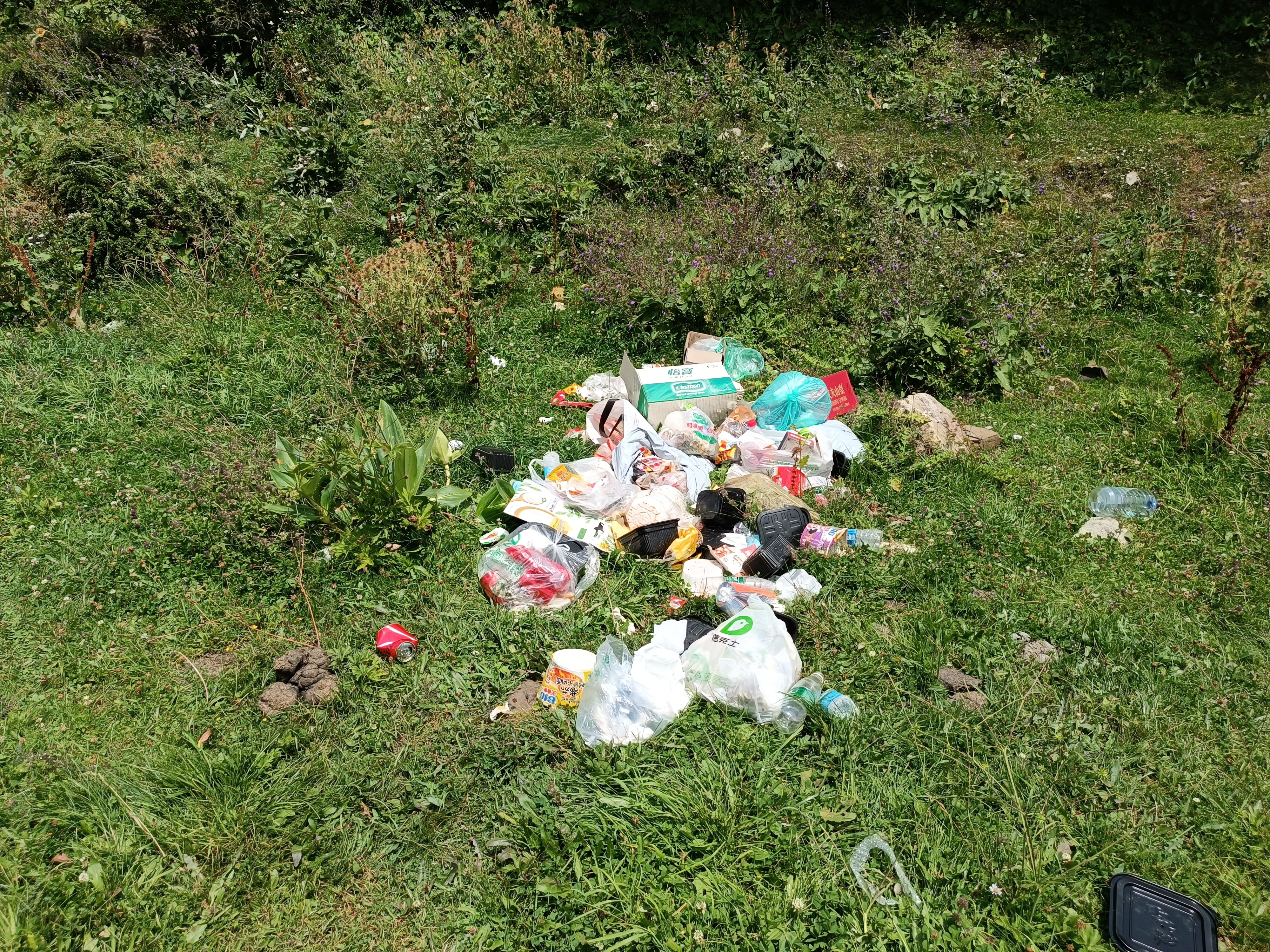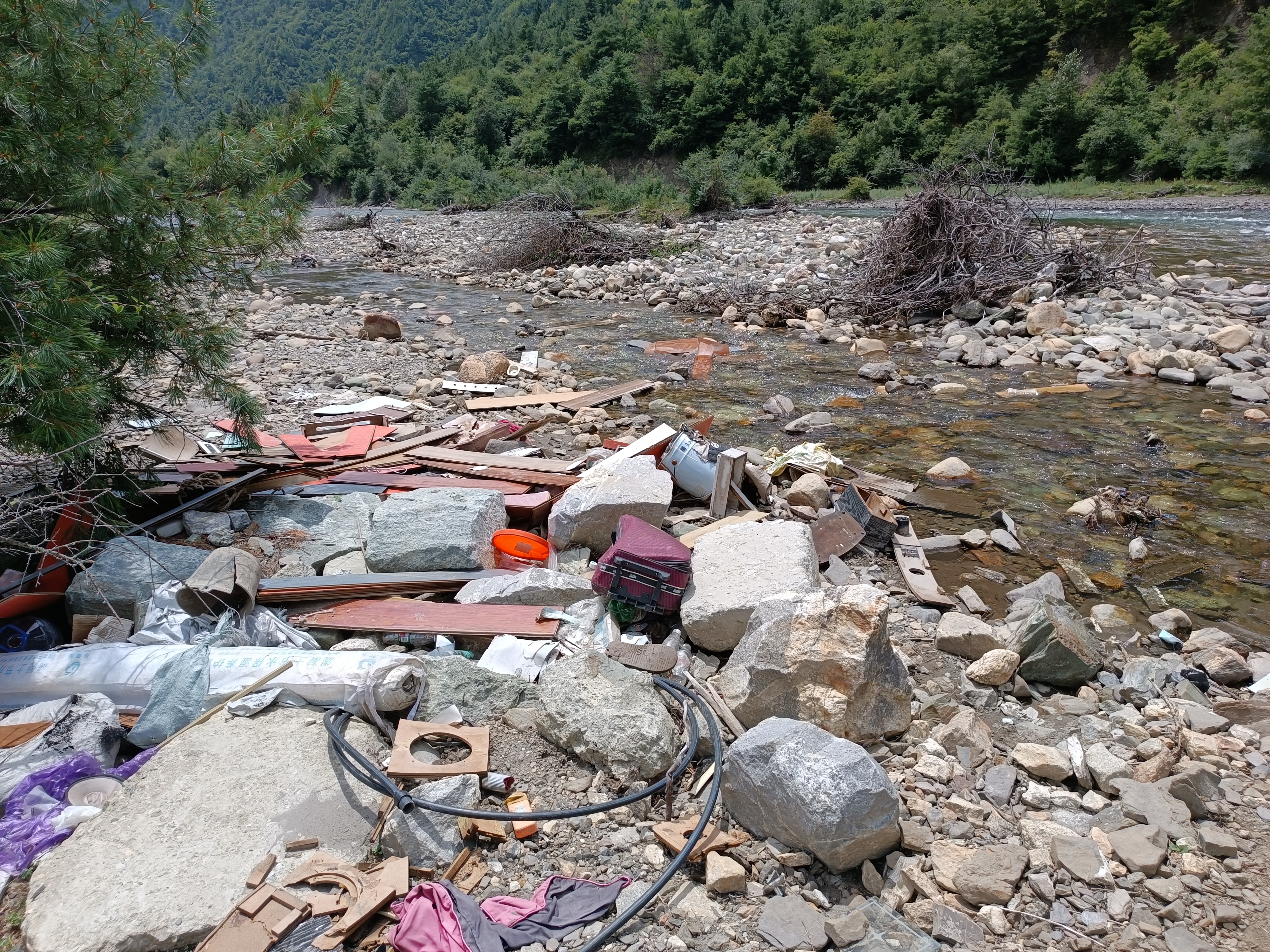Last summer, my family and I found ourselves among the throngs of Chinese urbanites departing the country’s shiny metropolises and heading outdoors. After spending more than 60 days trapped inside during Shanghai’s rigid COVID-19 lockdown earlier in 2022, we were eager to spend time in nature. We answered this “call of the wild” with a camping excursion to the edge of the mighty Tibetan plateau in southwest China’s Sichuan province.
Unlike North America and parts of Europe, where camping trips have been a summertime ritual for middle-class folks since the 19th century, this annual migration from the concrete jungle to the rural countryside is a relatively new phenomenon in China.
The pandemic has led to a global rise in people seeking experiences in natural spaces, and China is no exception.
Amid the nation’s now-lifted COVID-19 restrictions that limited international travel, Chinese youth began to view domestic recreational activities like hiking, fishing, and sleeping outdoors as trendy, even if their objective is social media-friendly photos instead of reconnecting with nature.
There was a massive uptick of interest in camping-related content on Chinese social media platforms in 2020 and 2021, and outdoor equipment sales are booming. During China’s five-day May Day holiday in 2022, searches for the term “glamping” saw a yearly increase of 746 percent on the Chinese lifestyle platform Xiaohongshu.
But with this incredible boost in popularity has come a problem: Trash — and lots of it — being left in China’s wild spaces.

Litter discarded by campers near a river in Sichuan province’s Garzê Tibetan Autonomous Prefecture in August 2022. Image courtesy of the author
Trashing Eden
On our first night camping in the wilderness of western Sichuan province, we settled alongside an aquamarine glacier-fed river. Our time there should have been memorable for the scenic surroundings — rocky peaks, dense forests, and a quaint Tibetan village nearby. Instead, I’ll remember the rainbow assortment of wrappers, plastic bottles, discarded surgical masks, and other rubbish in every direction.
It’s no secret that China deals with monumental waste-management difficulties, and anyone who has spent time in the Chinese mainland can attest that litter is a genuine issue. Even in the nation’s modern metropolises, it is not uncommon to see people discard waste by the roadside, although the impact is significantly reduced by the legions of community cleaners that roam most major cities picking up rubbish (Shenzhen alone employed more than 60,000 street sweepers in 2021).
Despite my familiarity with the sight of litter in China and elsewhere, the trash-ridden landscapes we encountered in western Sichuan were jarring.
One afternoon on our trip, while setting up camp at a particularly scenic mountain spot, I watched as a horse from the nearby village nosed through feces-filled diapers, empty beer bottles, and discarded camping equipment. I began to ponder China’s rural litter problem’s impact on the country’s wildlife and natural environment.
Plastic bags, elastics, and broken glass can injure, entangle, and suffocate wild animals, and southwest China is home to a diverse array of endangered and vulnerable species that could be affected. Of course, plastic waste that enters waterways is a danger to aquatic species and can release waterborne microplastics that are ingested by animals and the humans that consume them.
Many campsites we visited during our trip were located within the immediate vicinity of rivers and streams, and the trash left near them was at high risk of being swept downstream.
Back in the summer of 2020, standing at the viewing platform of Yunnan province’s famed Tiger Leaping Gorge, a popular trekking location, I witnessed this phenomenon in action: A seemingly never-ending array of plastic and other waste cascaded down the iconic rapids on the Jinsha River, bound for the Yangtze River and eventually the Pacific Ocean.
Garbage discarded in waterways threatens rural landscapes and their inhabitants in China but also has global repercussions. Researchers estimated in 2021 that China contributes roughly 7 percent of worldwide oceanic plastic pollution, coming in fourth globally, behind the Philippines, India, and Malaysia. The country has also been identified as one of the main contributors to the infamous “Great Pacific garbage patch.”
It doesn’t require a stretch of the imagination to assume that at least some of the litter I encountered while camping last summer has made it into the ocean.

Trash abandoned by campers near a river an hour outside the city of Kangding, the administrative seat of Sichuan province’s Garzê Tibetan Autonomous Prefecture, in August 2022. Image courtesy of the author.
Addressing the Mess
Returning to my home in Shanghai, I found it difficult to forget the mess I’d witnessed in southwest China. I began to research the various businesses and initiatives looking to tackle the country’s litter problem. What I found left me feeling slightly optimistic.
In Hong Kong, a startup called ClearBot aims to help the city tackle waterborne litter in Victoria Harbor. Founded in 2019, the company manufactures self-driving electric boats that seek out and remove floating trash from the ocean.
“With artificial intelligence, we are able to identify different objects in the water, then our boat zigzags across the area and collects all the waste,” said ClearBot co-founder Sidhant Gupta in the mini-documentary “The Hidden Price Behind Your Food Delivery Choices.”
Watching footage of ClearBot’s marine litter retrieval vessel instills some hope that the rubbish I witnessed in the Chinese countryside may still make it to a landfill if it enters a waterway.
But while ClearBot’s product aims to clean the problem out of existence, another Hong Kong-based firm seeks to make China’s — and the wider world’s — litter literally disappear.
The tech company EcoInno has developed a green composite material that boasts many of the positive attributes of plastic (water-resistant and lightweight) but is 100 percent biodegradable and does not rely on fossil fuels in its production. EcoInno seeks to replace single-use plastic, especially within the food delivery sector, which is responsible for more than 45 percent of global plastic waste.
EcoInno’s products are made with bamboo and sugar cane pulp and are potentially revolutionary because they break down entirely within 75 days. Since its products are made with 100 percent natural materials that are fully biodegradable, EcoInno’s containers do not release microplastics into the environment when littered.
If widely adopted, the Hong Kong company’s products will ensure that even if we cannot stop people from littering, discarded waste will not remain in the environment for decades or hundreds of years.
Hope for the Future
After the flagrant disregard for nature that I witnessed in Sichuan province last summer, it’s clear to me that educating Chinese students about the dangers litter poses to our natural world — something that has been happening for some time, according to educators I spoke with — has not been as effective as one would hope.
In fact, many of the worst offenders my family and I encountered during our Sichuan road trip were Gen Z travelers from major cities, youth who almost certainly received some anti-litter education.
In one particularly shameful scene, we witnessed a group of 20-something-year-old adults in a rental SUV dumping several bags of garbage — beer bottles, food packaging, cigarette butts — into a creek near a camping area. The act happened within sight of a nearby Tibetan settlement. A local villager wandered over to ask people to clean up after themselves; he privately told my brother-in-law and me that what we’d witnessed was normal, that “city folks” have been disrespecting his kin’s land with their litter for years.
Upon reflection, addressing the rubbish issue in China’s rural areas will likely require efforts beyond the classroom. And if you discount the prospect of Chinese authorities implementing harsh (but effective) Singapore-style anti-litter laws, we’re ultimately left with two options: clean up the mess or innovate the problem out of existence. The tech solutions offered by companies like ClearBot and EcoInno aspire to do just that, and they could be real game changers.
For the near term, novel tech is likely not a panacea to China’s countryside litter problem. But if innovative companies can scale up the production of rubbish-removing technology and ensure affordability, there’s hope that my 5-year-old daughter’s generation will be able to enjoy China’s wild spaces without the piles of discarded waste that currently plague its landscapes.
China’s Wild Spaces Have a Major Garbage Problem. Tech May Be the Solution.
Source: Frappler

0 Comments